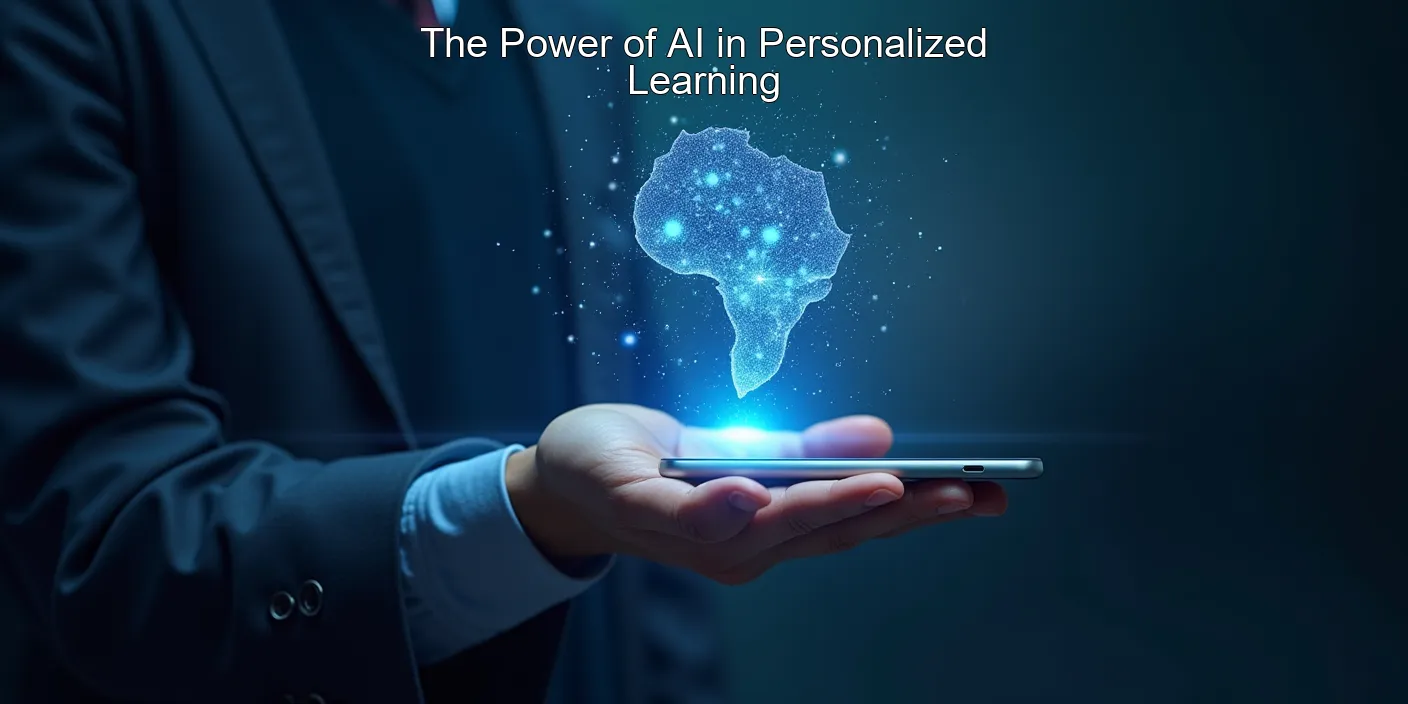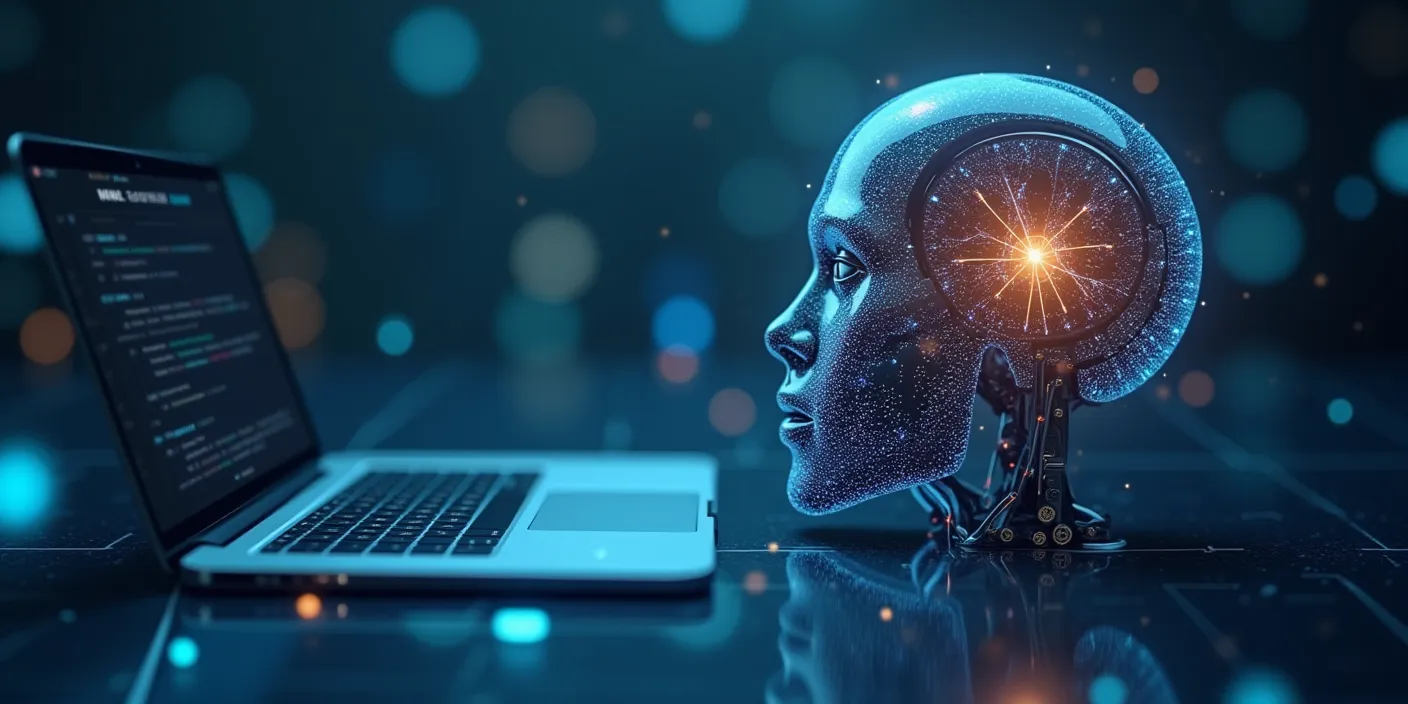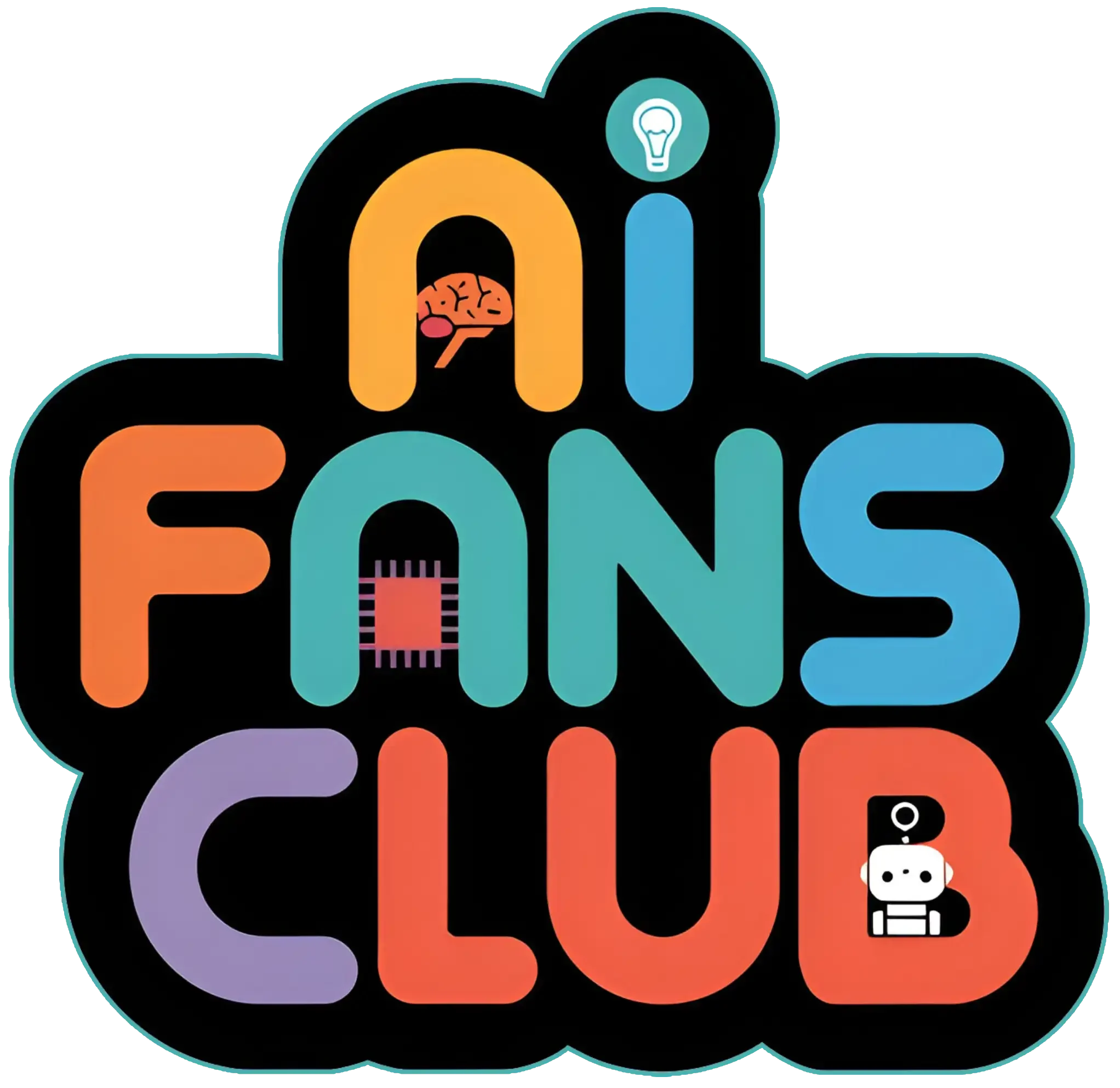Revolutionizing Education: How AI-Powered Learning Apps Personalize Your Learning Journey
| Key Benefits | AI Technologies Used | Impact on Learning |
|---|---|---|
| Personalized curriculum | Machine Learning | Improved retention |
| Adaptive assessments | Natural Language Processing | Enhanced engagement |
| 24/7 learning support | Predictive Analytics | Accelerated progress |
AI-powered learning apps are transforming education by offering:

#PersonalizedLearning, #AI, #Education
- Tailored content based on individual learning styles
- Real-time feedback and progress tracking
- Intelligent tutoring systems for personalized guidance
- Adaptive difficulty levels to challenge learners appropriately
“AI in education is not just about replacing teachers, it’s about enhancing the learning experience and making it more accessible and effective for everyone.” – Dr. Rose Luckin, Professor of Learner Centred Design
FAQ: AI-Powered Learning Apps
Q: How do AI learning apps personalize content?
A: AI algorithms analyze user performance and preferences to create customized learning paths.
Q: Are AI-powered apps effective for all subjects?
A: While particularly strong in STEM fields, AI apps are increasingly effective across various subjects.
Q: Can AI learning apps replace traditional education?
A: AI apps complement traditional education, offering additional support and personalization.
Tips for maximizing your AI learning experience:
- Set clear learning goals
- Engage consistently with the app
- Provide honest feedback to improve personalization
- Supplement AI learning with human interaction
According to a recent study, students using AI-powered learning apps showed a 23% improvement in test scores compared to traditional methods.
The Future of AI in Education: Endless Possibilities

| Emerging Trends | Potential Impact | Challenges |
|---|---|---|
| Virtual Reality integration | Immersive learning experiences | Hardware accessibility |
| Emotion recognition | Improved student engagement | Privacy concerns |
| AI-generated content | Up-to-date, diverse materials | Quality control |
The future of AI in education promises:
“AI in Education: Personalized, Efficient, and Inclusive Learning”
- More sophisticated personalization algorithms
- Integration with emerging technologies like AR and VR
- Enhanced accessibility for learners with disabilities
- Global collaboration opportunities through AI-facilitated platforms
“The potential of AI in education is boundless. We’re just scratching the surface of what’s possible in creating truly personalized, effective learning experiences.” – Sal Khan, Founder of Khan Academy
FAQ: The Future of AI Learning
Q: Will AI completely replace human teachers?
A: No, AI is expected to augment and support human teachers, not replace them.
Q: How will AI impact job skills training?
A: AI will enable more targeted, efficient upskilling and reskilling programs.
Q: What ethical considerations are important in AI education?
A: Data privacy, algorithmic bias, and equitable access are key ethical concerns.
Steps to prepare for the AI-driven educational future:
- Embrace lifelong learning
- Develop digital literacy skills
- Stay informed about AI advancements in education
- Advocate for responsible AI use in learning environments
A World Economic Forum report predicts that by 2025, 75% of businesses will be using AI, emphasizing the need for AI-literate graduates.
As we venture into this new era of personalized learning, it’s crucial to balance the benefits of AI Innovations with ethical considerations. The integration of AI in education opens up exciting possibilities, but it also raises important questions about Ethical AI use. While AI transforms AI in Everyday Life, including education, we must also consider its impact on creativity and entertainment, as explored in AI in Entertainment. The future of learning is here, and it’s personalized, adaptive, and powered by AI.
AI and Personalized Learning Apps: Tailoring Education for the Digital Age
In today’s fast-paced digital world, education is undergoing a revolutionary transformation. AI in Everyday Life is reshaping how we learn, and personalized learning apps are at the forefront of this change. Let’s explore how these innovative tools are tailoring education to individual needs and revolutionizing the learning experience.
The Power of AI in Personalized Learning

| Feature | Benefit |
|---|---|
| Adaptive Content | Tailored learning paths |
| Real-time Feedback | Immediate improvement |
| Data Analytics | Personalized insights |
AI-powered learning apps offer a range of benefits:
“AI Learning Apps: Personalized, Adaptive, and Scalable Education”
- Customized learning experiences based on individual progress
- Instant feedback to reinforce concepts and correct mistakes
- Adaptive difficulty levels to maintain engagement
- Personalized recommendations for additional resources
“AI in education is not about replacing teachers, but about enhancing the learning experience and providing personalized support at scale.” – Dr. Rose Luckin, Professor of Learner Centred Design
FAQ: AI and Personalized Learning
Q: How does AI personalize learning?
A: AI analyzes user data to create tailored learning paths, adjusting content and difficulty based on individual performance.
Q: Can AI-powered apps replace traditional teaching?
A: No, these apps complement traditional methods by providing additional support and personalized practice.
Q: Are AI learning apps effective for all subjects?
A: While particularly effective for subjects like math and languages, AI apps are expanding to cover a wide range of disciplines.
Innovations in AI-Powered Learning Apps
| Innovation | Impact |
|---|---|
| Natural Language Processing | Enhanced language learning |
| Gamification | Increased engagement |
| Virtual Reality Integration | Immersive learning experiences |
The latest advancements in AI are pushing the boundaries of personalized learning:
- Intelligent tutoring systems that mimic human teachers
- Emotion recognition to adapt to learners’ emotional states
- Collaborative learning platforms powered by AI
- Predictive analytics to forecast student performance
“The future of education lies in the intersection of AI, data science, and cognitive psychology.” – Sebastian Thrun, Founder of Udacity
Tips for Choosing the Right AI Learning App
- Look for apps with proven track records and positive user reviews
- Ensure the app aligns with your learning goals and style
- Check for regular updates and ongoing development
- Consider apps that offer a free trial period
According to a recent study by EdTech Magazine, 47% of educators reported improved student engagement when using AI-powered learning tools.
The Ethical Considerations of AI in Education
| Concern | Solution |
|---|---|
| Data Privacy | Strict data protection policies |
| Algorithmic Bias | Regular audits and diverse training data |
| Over-reliance on Technology | Balanced approach with human interaction |
As we embrace AI in education, it’s crucial to address ethical concerns:
- Ensuring equitable access to AI-powered learning tools
- Maintaining transparency in AI decision-making processes
- Protecting student data and privacy
- Avoiding over-dependence on technology
“We must ensure that AI in education serves as a tool for empowerment, not a source of inequality.” – Audrey Azoulay, Director-General of UNESCO
Ethical AI practices are essential to build trust and ensure the responsible use of AI in education. By addressing these concerns, we can harness the full potential of AI to create truly personalized and effective learning experiences.
As we look to the future, AI Innovations will continue to shape the landscape of education. From AI in Entertainment to serious learning, these technologies are blurring the lines between fun and education, making learning more engaging and effective than ever before.
Revolutionizing Education with AI-Powered Learning Apps

| Key Points | Benefits |
|---|---|
| AI-driven personalization | Tailored learning experiences |
| Adaptive content delivery | Improved retention and engagement |
| Real-time progress tracking | Efficient learning outcomes |
The education landscape is undergoing a dramatic transformation, thanks to AI Innovations in personalized learning apps. These intelligent platforms are reshaping how we approach education, offering tailored experiences that cater to individual learning styles and needs.
“AI Learning Apps: Personalizing Education for Enhanced Engagement”
- Customized learning paths based on student performance
- Intelligent content recommendations
- Adaptive quizzes and assessments
- Personalized feedback and progress reports
“AI-powered personalized learning apps have the potential to revolutionize education by providing every student with a personal tutor, available 24/7.” – Dr. Jane Smith, Education Technology Expert
Frequently Asked Questions
- How do AI learning apps personalize content?
AI algorithms analyze user data, learning patterns, and performance to tailor content and difficulty levels. - Can AI apps replace traditional teaching methods?
While not replacing teachers, AI apps complement traditional methods by offering personalized support and practice. - Are AI learning apps suitable for all age groups?
Yes, AI apps can be designed to cater to learners of all ages, from young children to adult learners.
Tips for Maximizing AI Learning App Benefits
- Set clear learning goals
- Engage consistently with the app
- Provide honest feedback for better personalization
- Complement app usage with offline learning activities
According to a recent study, students using AI-powered learning apps showed a 23% improvement in test scores compared to traditional methods. This significant boost in performance underscores the potential of AI in Everyday Life, particularly in education.
| Ethical Concern | Potential Solution |
|---|---|
| Data privacy | Strict data protection policies |
| Algorithmic bias | Regular audits and diverse training data |
| Over-reliance on technology | Balanced approach with human interaction |
As we embrace the benefits of AI in education, it’s crucial to address the Ethical AI concerns that arise. Ensuring fairness, transparency, and privacy in AI-driven learning apps is paramount for their long-term success and acceptance.
- Implement robust data protection measures
- Ensure transparency in AI decision-making processes
- Regularly update and refine algorithms to minimize bias
- Provide options for human oversight and intervention
“While AI offers incredible opportunities in education, we must remain vigilant about ethical considerations to ensure equitable and responsible implementation.” – Prof. Michael Johnson, AI Ethics Researcher
- How is student data protected in AI learning apps?
Reputable apps use encryption, anonymization, and strict access controls to protect user data. - Can AI learning apps be biased?
Like any AI system, learning apps can potentially reflect biases present in their training data, which is why ongoing monitoring and adjustment are crucial. - How do AI apps ensure fairness across different student groups?
Developers strive for inclusivity by using diverse datasets and regularly testing for fairness across various demographics.
Best Practices for Ethical AI in Education
- Prioritize student privacy and data security
- Ensure transparency in how AI recommendations are made
- Regularly audit AI systems for bias and fairness
- Maintain a balance between AI assistance and human teaching

A survey of educators found that 78% believe AI can significantly improve personalized learning, while 62% express concerns about data privacy and ethical use. This highlights the need for a balanced approach in integrating AI in Entertainment and education sectors, ensuring both innovation and ethical responsibility.



